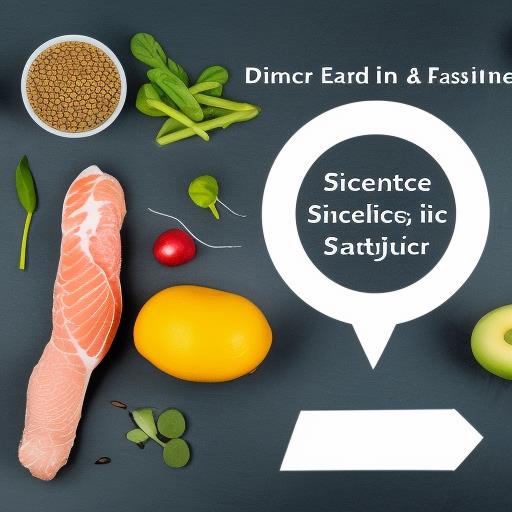
The Science Behind Successful Slimming: Understanding the Role of Diet, Exercise, and Lifestyle Factors
In today's society, achieving and maintaining a healthy weight is a common goal for many individuals. However, slimming down is not just about looking good; it also plays a crucial role in promoting overall health and well-being. In this blog post, we will explore the science behind successful slimming and understand how diet, exercise, and lifestyle factors contribute to achieving long-term weight loss.
The Importance of Diet in Slimming Down
When it comes to losing weight effectively, diet plays a fundamental role. The food we consume provides our bodies with energy and nutrients necessary for various bodily functions. By understanding the science behind nutrition, we can make informed choices that support our weight loss goals.
A calorie deficit is at the core of any successful slimming journey. This means consuming fewer calories than your body needs to maintain its current weight. To achieve this deficit while still meeting nutritional requirements, it's essential to focus on nutrient-dense foods such as fruits, vegetables, whole grains, lean proteins, and healthy fats.
Furthermore, research suggests that certain diets may be more effective than others when it comes to sustainable weight loss:
- Ketogenic Diet: A low-carbohydrate diet that promotes ketosis – a metabolic state where the body burns fat for fuel instead of carbohydrates.
- Mediterranean Diet: Emphasizes plant-based foods like fruits and vegetables along with whole grains and healthy fats like olive oil.
- DASH Diet: Designed to lower blood pressure by focusing on fruits, vegetables, whole grains, lean proteins, and low-fat dairy products.
It's important to note that the most effective diet for weight loss varies from person to person. Consulting with a registered dietitian can help determine the best approach based on individual needs and preferences.
The Role of Exercise in Successful Slimming
While diet plays a significant role in slimming down, exercise is equally important. Regular physical activity not only burns calories but also offers numerous health benefits that support sustainable weight loss.
Studies have shown that combining aerobic exercises (such as running or swimming) with strength training can lead to increased fat loss while preserving muscle mass. This is crucial because maintaining muscle helps boost metabolism even at rest, making it easier to maintain weight loss over time.
In addition to calorie expenditure, exercise has several other positive effects on our bodies during the slimming process:
- Improved Insulin Sensitivity: Physical activity enhances insulin sensitivity, allowing cells to better utilize glucose for energy rather than storing it as fat.
- Elevated Mood: Exercise stimulates the release of endorphins – chemicals in the brain responsible for feelings of happiness and well-being – which can help combat emotional eating and improve overall mental health during weight loss journeys.
- Better Sleep Quality: Regular exercise promotes better sleep patterns by reducing stress levels and increasing relaxation. Sufficient sleep is essential for successful slimming as inadequate sleep has been linked to increased hunger hormones and decreased satiety hormones.
Lifestyle Factors That Influence Successful Slimming
In addition to diet and exercise, various lifestyle factors can significantly impact the success of a slimming journey. Here are some key considerations:
1. Sleep
Adequate sleep is crucial for successful weight loss. Poor sleep disrupts hunger hormones, leading to increased appetite and cravings for high-calorie foods.
2. Stress Management
Chronic stress triggers the release of cortisol, a hormone that promotes fat storage, particularly around the abdominal area. Finding effective stress management techniques such as meditation or yoga can help prevent weight gain and support slimming efforts.
3. Hydration
Drinking enough water is essential for overall health and can aid in weight loss by promoting feelings of fullness and boosting metabolism.
4. Mindful Eating
Eating mindfully involves paying attention to physical hunger cues, eating slowly, savoring each bite, and being aware of portion sizes. This practice helps prevent overeating and encourages healthier food choices.
The Importance of Sustainable Slimming Practices
In conclusion, understanding the science behind successful slimming allows us to make informed decisions about our diet, exercise routines, and lifestyle choices when aiming for long-term weight loss.
Fad diets or extreme measures may offer quick results but often fail to provide sustainable outcomes due to their restrictive nature or lack of scientific evidence supporting their effectiveness in the long run.
To achieve lasting results while maintaining optimal health, research suggests focusing on balanced nutrition through calorie deficit diets combined with regular physical activity tailored to individual needs.
 For Secret Slimming Tips Click Here
For Secret Slimming Tips Click Here